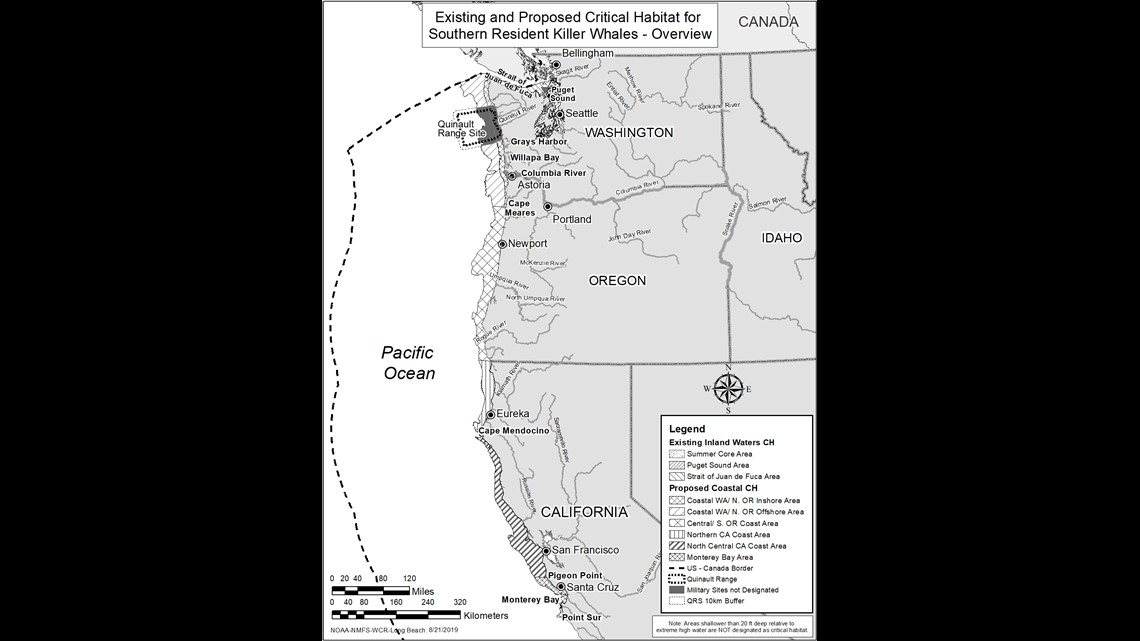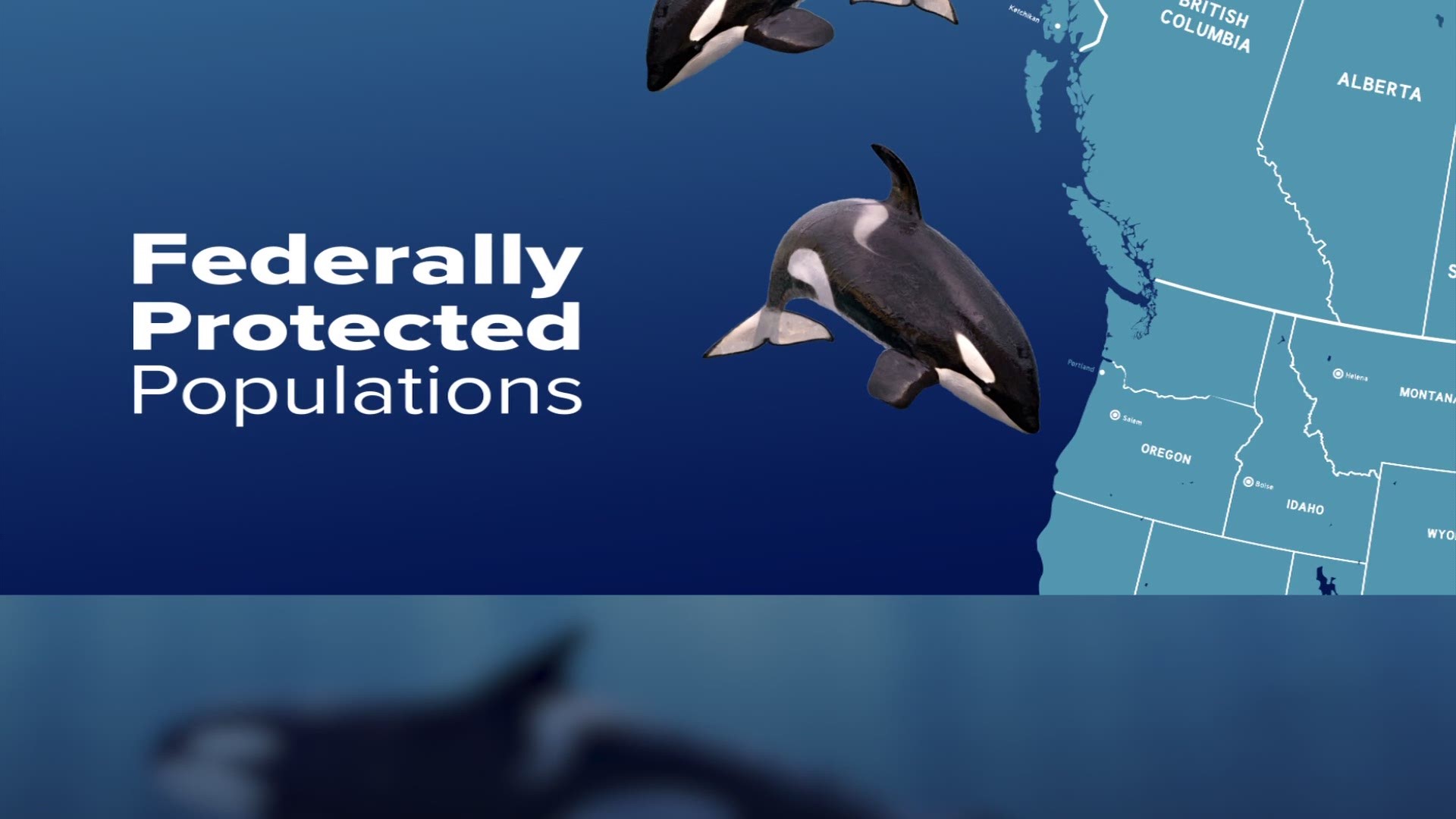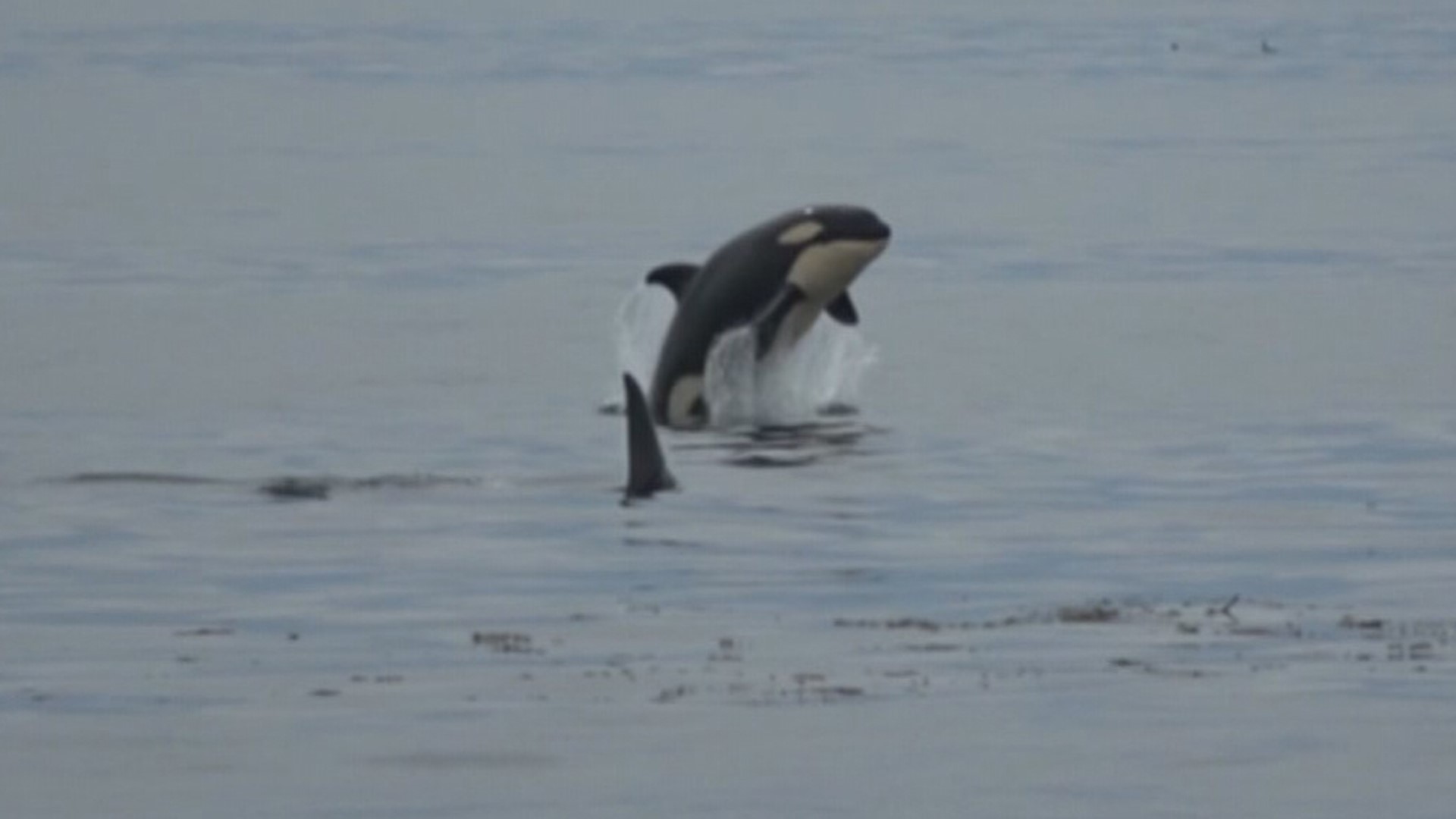SEATTLE — Much of the West Coast would be designated as critical habitat for Southern Resident killer whales under a proposal from the National Oceanic and Atmospheric Administration.
The proposal would expand the habitat to six areas on the West Coast, including 15,626 square miles of marine waters from the U.S.-Canada border south to Point Sur, California.
Critical habitat as defined by NOAA is needed to support the recovery of a specific species.
The Center for Whale Research, which monitors the orcas, announced this month that three more have recently gone missing and are presumed dead, bringing the remaining population to 73 whales — the lowest number since the mid-1970s, when dozens were captured for display at marine parks around the world.
The whales have been struggling with a dearth of Chinook as well as pollution and vessel noise, which advocates say hinders the echolocation they use to hunt.


The proposal follows a lawsuit seeking to establish a protection zone for the orcas. The Center for Biological Diversity and the Orca Relief Citizens' Alliance previously sued NOAA Fisheries in U.S. District Court in Seattle, saying the agency failed to act on a petition it filed in 2016, The Associated Press previously reported.
The lawsuit became the third in a year that the Center for Biological Diversity has filed seeking better protection of the whales.
The federal government announced that by next May, it will issue an updated analysis about the extent to which salmon fishing is harming the orcas.


